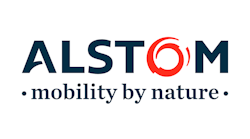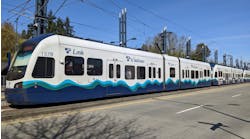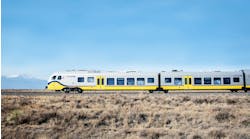Alstom has been awarded an order from FNM (Ferrovie Nord Milano), Lombardy regional railways operator, for 10 additional Coradia Meridian regional trains. The order, worth €67 million, is part of a frame agreement signed in 2008 by Alstom and FNM. Within this frame agreement, 14 trains have already been delivered. The delivery of the 10 additional trains is scheduled for early 2014.
The addition of the new trains aims to strengthen Lombardy regional service and to answer its increasing demand for mobility.
"This new order from FNM is a strong sign of trust in Alstom regional trains, especially as it comes in the wake of the successful introduction of the previously ordered trains that are now circulating on Lombardy regional lines" said Pierre-Louis Bertina, Managing Director of Alstom Transport in Italy.
Coradia Meridian is designed for regional operators in Southern Europe. It is a five car-train EMU type (Electric Multiple Unit) that can run at a maximum speed of 160 km/h. Its concentrated traction system with two motor bogies, optimize the electrical braking capability of the train allowing energy consumption and brake wear to be reduced. With 95 percent rate of recyclability, the train is environmentally friendly.
Coradia Meridian regional train meets with new standards in terms of comfort, safety and accessibility. Its low-floor facilitates access to passengers, especially those with reduced mobility. Each door is equipped with integrated bridging plates to fill the gap between the train and the platform. For passengers' comfort and safety, the train is equipped with on-board video-surveillance system as well as display screens visible from all parts of the train, audio information, Braille signs, 220 V sockets for mobile phones and laptops, and space dedicated to luggage.
Coradia Meridian regional trains will be designed and manufactured in Italy. Project development, most of the manufacturing as well as the certification, will be done in Savigliano site in Cuneo. The plant in Sesto San Giovanni (Milan) will be responsible for the design and manufacturing traction systems and auxiliary converters. Trainborne signalling systems will be delivered by the Bologna site.


